Where Do You Get Your Information?
Editor’s Note:
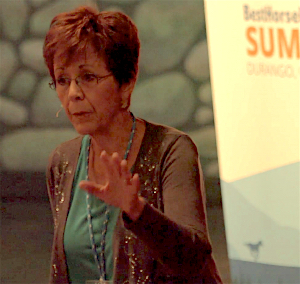 Dr. Sheryl King is professor emeritus of Southern Illinois University and one of the most popular presenters at the inaugural Summit. This year, she will present on forage-based nutrition: Feeding For A Long, Productive Life:
Dr. Sheryl King is professor emeritus of Southern Illinois University and one of the most popular presenters at the inaugural Summit. This year, she will present on forage-based nutrition: Feeding For A Long, Productive Life:
We will learn about the unique digestive system and lifestyle of the horse to understand why forage based feeding is essential to basic equine welfare. Common feeding fallacies will be discussed as well as science-based recommendations for a variety of equine athletes.
Dr. King writes:
As a scientist, I have been trained to be a skeptic and to rely on facts to support or refute a position. My fields of expertise are physiology and horses; therefore, I know how the equine body works, including how to evaluate and protect horses’ welfare.
Every week, I hear of a piece of “horse wisdom” that makes absolutely no physiological sense, yet it is presented as fact. In the best of times, I simply shake my head. In the worst, I cringe. Either way, I can’t help but worry about the horses affected by this “wisdom.”
Scientists are truth-seekers. A good scientist will go where the facts lead. Period. Sometimes, our discoveries surprise us; sometimes they disturb us. Always, they inform us. That is, if we choose to listen.
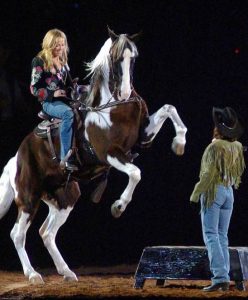 I directed the Equine Science program at Southern Illinois University for nearly three decades, during which time I was responsible for the welfare of hundreds of horses and have taught many more hundreds of humans about horses.
I directed the Equine Science program at Southern Illinois University for nearly three decades, during which time I was responsible for the welfare of hundreds of horses and have taught many more hundreds of humans about horses.
After puzzling on the nature of the human psyche, I’ve concluded that in America, the rational, scientific approach to forming an opinion is in the minority. In fact, in America scientists are sometimes viewed with contempt, particularly in response to facts that don’t support the listener’s opinions. It continues to mystify me that so many people choose to believe a celebrity or a layperson (… “my neighbor’s grandfather had horses and he said . . . ”) over a credentialed scientist when it comes to making decisions about their horses.
For typical examples of this behavior, you need look no further than any horse magazine where ads often feature a picture of a recognizable celebrity in the entertainment, sports, or competitive horse world endorsing any number of products (“it works for my horses, and it can work for yours!”).
When we read about myriad controversial issues surrounding horse management. Too often it is the celebrity, not the scientist or even the professional horseman, that is quoted.
 Bo Derek, Madeline Pickens, Willie Nelson, Lea Michelle, and Sheryl Crow have name-recognition. But do they have facts? Opinions are free and everyone is entitled to them. If these celebrities really wanted to help horses, they could use their considerable resources to sponsor unbiased, scientific research on the topic that stirs their passion. What a concept!
Bo Derek, Madeline Pickens, Willie Nelson, Lea Michelle, and Sheryl Crow have name-recognition. But do they have facts? Opinions are free and everyone is entitled to them. If these celebrities really wanted to help horses, they could use their considerable resources to sponsor unbiased, scientific research on the topic that stirs their passion. What a concept!
People believe the celebrities. They believe their fellow horse owners. They will even believe the person down the street who has lots of experience with pets but has never owned a horse (although they do think that horses are pretty and probably pretty much the same as a dog or cat, right?).
When searching for horse information, some seek out opinions on social media, often among the equally uninformed.
The problem with believing what you are told by Joe Q. Public is that it leaves you and your horse vulnerable to being misled by those with an agenda, hidden or otherwise. If we invested the same amount of time seeking the facts from experts, we would be much better positioned to do right by our horses.
I am not asking you to agree with my opinions. What I am asking is:
- Form your opinions based on the best available facts
- Make skeptical inquiry a habit
- Do not practice blind trust in sexy but unworthy sources
- Do use the internet to investigate an issue, but try a search using Google Scholar rather than relying on the hit-or-miss of Google search, since commercial entities pay for higher search engine optimization results.
In the end, you and your horses will benefit.
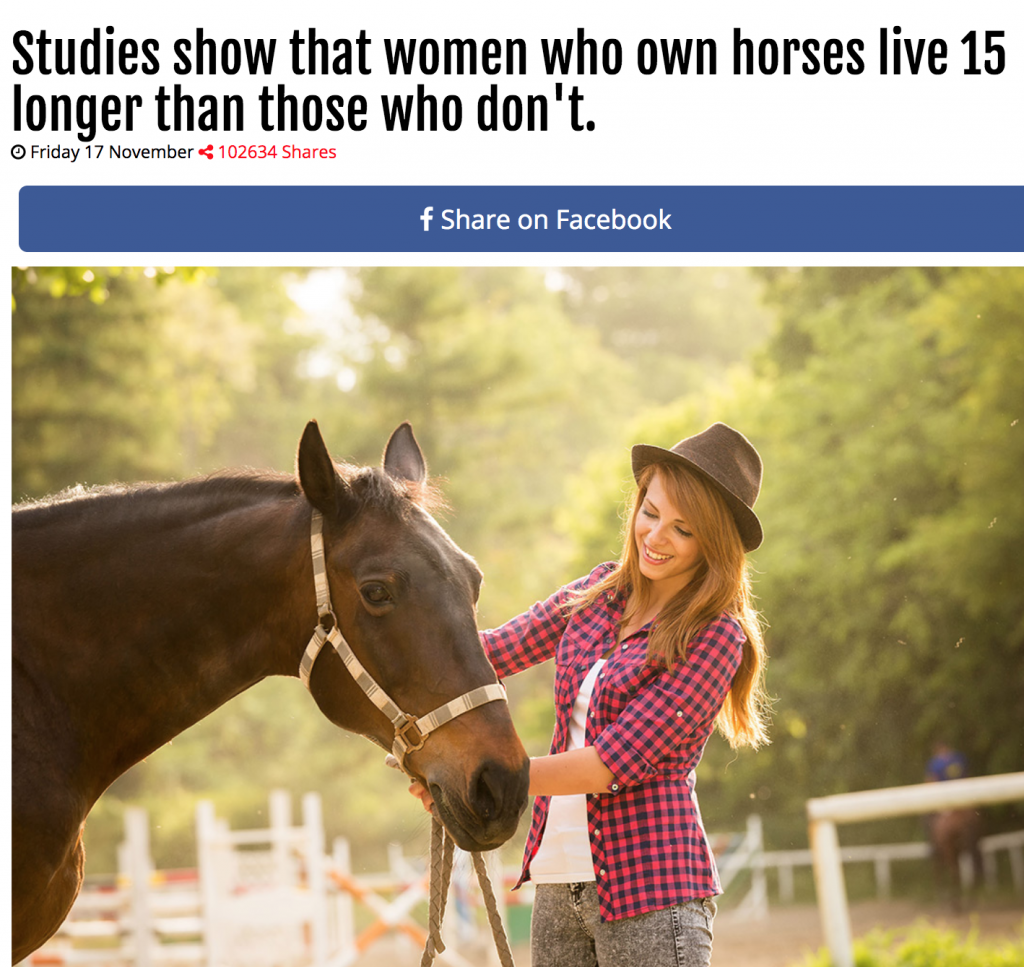
Yet another bogus study appeals to unwitting horse owners.
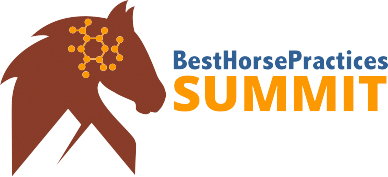
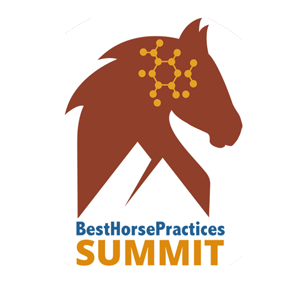
Love this article Sherry! Spot on. Some of the bogus statements made, especially on social media, are mostly funny because they are so unproveable and wildly imaginative. On the other hand, there are people who will believe them and that is the sad part.
Totally agree! I was just critized for sharing fact based info re feeding an EMS horse . This person had years of horse experience & a vet assist degree but apparently no recent knowledge of current research & no substantiation of her claims of her way
Dr. King,
Thank you for standing up and giving science a voice. We seem to live in an age (especially in the United States) where the scientific method has become scorned because it is not what we want to hear and we do not know how to access or critique good studies. I can understand where people get turned off by big pharmaceutical or Big Ag company quoted research which has been hand selected and biased. Our sources of so called truth lack validity and reliability. Unfortunately, in the horse world this is often at the expense of the animals welfare. Even though we have the best of intentions, we can do harm if equipped with poor quality information that does not stand up to peer reviewed scientific inquiry (Evidence-based). For this very reason I am so glad to be participating with you and other scientists at the Best Horse Practices Summit in order to provide the public with science/evidence based information. Thank you for your strong and clear voice in this current bewildering world of opinion and celebrity endorsement.
Very well said. It is way too often about the money and not about what a horse needs.